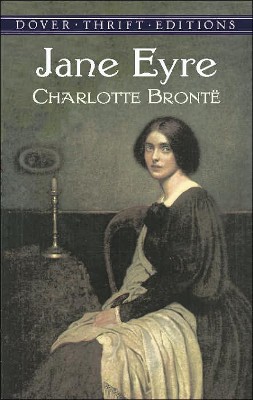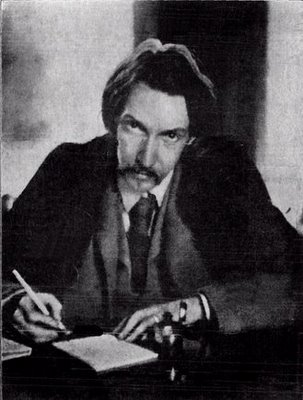 R.A. Riekki is an author with Ghost Road Press who has always dreamed of being interviewed by Rolling Stone and Spin. Therefore, he pretended that they did interview him in this stream-of-consciousness (and reportedly fever-induced) faux interview. Here he pulls real questions from other interviews and gives them his own creative answers. Riekki's book U.P. has earned top reviews for Ghost Road and is currently being made into a film. R.A. Riekki
R.A. Riekki is an author with Ghost Road Press who has always dreamed of being interviewed by Rolling Stone and Spin. Therefore, he pretended that they did interview him in this stream-of-consciousness (and reportedly fever-induced) faux interview. Here he pulls real questions from other interviews and gives them his own creative answers. Riekki's book U.P. has earned top reviews for Ghost Road and is currently being made into a film. R.A. Riekki: Let me start out by saying this is really exciting to be interviewed by
Spin. I used to read you guys all the time as a kid because you gave me a free subscription. True story. Thank you so much for that, by the way. Again, really, really excited for this interview.
Spin: Dig Out Your Soul sounds like you ordered in the ingredients, and all the labels on the jars read ROCK or MORE ROCK.
R.A. Riekki: I--I do not have a clue what that means. What are you talking about?
Spin: Surely the whole process wasn't all fun.
R.A. Riekki: Are you talking about my novel? I loved writing the novel. It actually was a blast to write.
Spin: Would the name be different if they were Magnum or Trojan condoms?
R.A. Riekki: Oh. Oh, I get it. You're being postmodern. Um, I forgot what you asked, something about condoms.
Spin: Well, you know, you could be sanitary and throw it away?
R.A. Riekki: Throw what away? The condoms?
Rolling Stone: So it's safe to say that now that you are free of your contracts you're not going to be rushing to sign a new deal?
R.A. Riekki: Wow, I didn't know I was going to be interviewed by
Rolling Stone too. Um, well, contracts, yes, I just signed two contracts--one for my novel
A Portrait of the Artist as a Bogey Man to come out on Ghost Road Press in spring 2010 and then another one for my novel
Hunger and the Ass to come out on Ghost Road in fall of next year, so it's exciting to be having two novels coming out in 2010.
And then a producer in L.A. is supposed to call me today about finalizing some contracts for my novel
U.P. to be turned into a film, so it's a crazy time for me for contracts, yes. But they're not finished. We're still in the process. And I think you said something about signing more in the future? Yeah, I mean, contracts are inevitable.
As a matter of fact, before I became a published author, I didn't realize how much time is spent on publicity and interviews and contract negotiations and all of these other things that really have nothing to do with the more creative aspects of writing, which I naively thought was all you did as a writer. But yes, contracts, how the hell did
Rolling Stone hear about that, though?
Rolling Stone: A lot of artists love the album form or have some connection to it. Is it going to bother you to be more single-focused?
R.A. Riekki: Single focused? Um, I don't record songs. I used to be in bands, but, uh, I just write now. So no recording singles or anything like that. I'd love to. And this is funny, but I'm really excited about the soundtrack for the film of
U.P. if it does get shot as a movie, which is kind of funny, that I'm fired up for the soundtrack of the film, but music is so central to the novel that I feel it's got to be at the heart of the movie version if that comes to fruition. I mean, we're still in the early stages of contract stuff that we were just talking about, so don't mean to count chickens before they're hatched.
Spin: Butch Vig, who produced New Wave, helmed the new one as well. What makes him exciting to work?
R.A. Riekki: I don't mean to be rude, but I understand the questions a lot better from
Rolling Stone. I just don't know what you're talking about again. And what do you mean by "exciting to work"? Do you mean "exciting to work with"? Because I've never worked with Butch Vig. I'm not even sure who he is. Didn't he work with Nirvana? Or Garbage? Is he in publishing now or something?
Spin: You're having your first kid any second now. Are you ready?
R.A. Riekki: No, I'm not. I'm not having a kid. I'd like to, but I don't even have a girlfriend, so . . . Not to be rude, but can I get a question from
Rolling Stone instead?
Bill O'Reilly: Do you think Hillary Clinton is soft on terrorism?
R.A. Riekki: Is that--who let Bill O'Reilly in here? Am I supposed to really answer that?
Bill O'Reilly: We'll have more with Mr. Bush in a moment, including why the Taliban is gaining strength again in Afghanistan.
R.A. Riekki: I'm definitely not George W. Bush. Thank God! Quick question: can I not be interviewed by Bill O'Reilly, please?
Bill O'Reilly: All right. I don't want to--
R.A. Riekki: I would actually not mind going back to
Spin's questions.
Bill O'Reilly: I don't want to debate world politics with
you.
R.A. Riekki: Look, I'm just gonna take three more questions, OK, one more from each of you. This was just supposed to be for Julia Buckley's
Mysterious Musings book blog in Illinois, and I'm very sick right now, and I'm realizing I should have prepared for this. I mean, Bill has an earpiece and staff all around him and I'm in a tanktop and sweats on my bed.
Spin: The idea of very personal beliefs seems to lead into your views about rock criticism in general. A lot of more literary writers have been dabbling in music criticism tinged with personal essay, and your work is like that, too.
R.A. Riekki: That felt like a real question. Thank you,
Spin. OK, yes, I agree,
U.P.'s really influenced by that Gonzo New School, Truman Capote, High Fidelity, Hunter S. Thompson mix, you know, Lester Bangs and hip-hop and old Cream issues I'd read as a kid. Yes, and
Spin too and
Rolling Stone, I mean, it's a musical novel--I filled it with Subhumans and Slick Rick and Lou Reed and N.W.A. and Ice T and Megadeth and Sex Pistols because those bands rule and because I wanted my love of music poured into the book, and I've gotten a lot of great responses from readers who like that Nick Cave Henry Rollins Richard Hell I Am the Greatest Says Johnny Angelo style of writing where music plays a big part of the novel's construction, its references, its rhythms. I like that question.
Rolling Stone: Did you get any nice Christmas presents from your bandmates?
R.A. Riekki: When did
Rolling Stone and
Spin swap seats? It's November and I don't have any bandmates. You're wasting my time. Last question.
Bill O'Reilly: You’ve got MI-6 and Russian intelligence because they’re all saying the same thing that’s why. You’re not going to apologize to Bush, you are going to continue to call him a liar.
R.A. Riekki: Bill, that's not even a question, that's--I'm not even sure what that is? Paranoia? Or just rambling, I guess? Like some crazy old guy who's pretending he's in a Tom Clancy novel. And why is Bill looking at me like he's an eagle? Why is he so mad? Can someone get Bill O'Reilly a whiskey or something with a lot of alcohol in it? Or maybe have him leave? I tell you what, let's have the last question be from
Rolling Stone.
Bill O'Reilly: Je ne vais pas vous faire avouer ce n'était pas mentir. Allez-y.
R.A. Riekki: Why is Bill O'Reilly speaking French? I think he's saying in French that he wants to leave. Last question. In English. From
Rolling Stone.
Bill O'Reilly: You'd love to get rid of me.
R.A. Riekki: Yes.
Rolling Stone, final question. Hopefully about my novel. I-I'm trying to plug my novel.
Bill O'Reilly: Because they couldn’t, it was a Gestapo-led place where they got their heads cut off …
R.A. Riekki: Just talk over him. I think he's getting senile. Ignore him.
Spin: You had a duet with Tegan Quin on the last record. Any collaborations this time around?
R.A. Riekki: Ignore
Spin, too. They're back to being idiots. Just yell the final question
Rolling Stone.
Rolling Stone: So you're saying that if I bring up your Satan worshipping that it would be an inaccuracy!
R.A. Riekki: You're not going to seriously end with that question, are you? I mean, seriously. I wrote a novel that has been on Ghost Road Press's top ten bestseller list for the last 36 weeks straight and that's what you're going to ask me? It was nominated by a National Book Award winner, John Casey, for the Sewanee Writers' Series, and that's what you're going to ask me.
Rolling Stone: Never mind. I think we're done.
R.A. Riekki: Do you know Terry Gross has interviewed several puppets by now? Kermit the Frog, Triumph the Insult Comic Dog. The list goes on. Puppets! And she still asks them penetrating, insightful, brilliant questions.
Julia, can you please start a campaign for me where your blog readers write into NPR asking them to have Terry interview me. I've earned it after this interview.
I think a lot of people want to be interviewed by Terry Gross. But I'll keep my fingers crossed for you, Ron. :)
 My family members got lots of books this holiday season. My son has a December birthday and so do I, so we got birthday books and Christmas books and now we just have to find the time to read them. :)
My family members got lots of books this holiday season. My son has a December birthday and so do I, so we got birthday books and Christmas books and now we just have to find the time to read them. :)







































